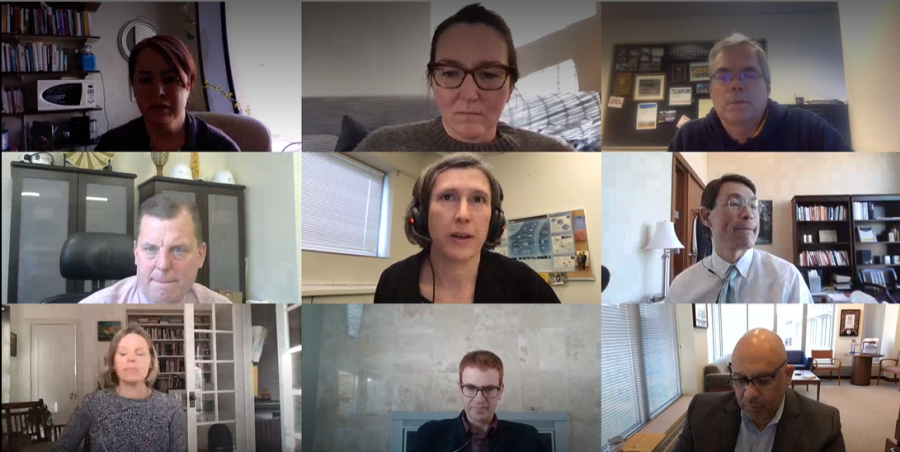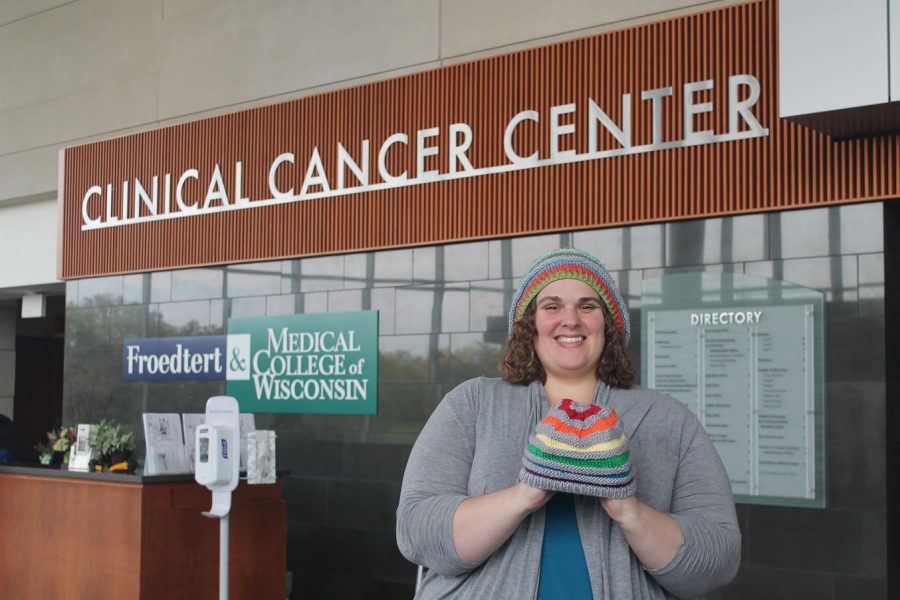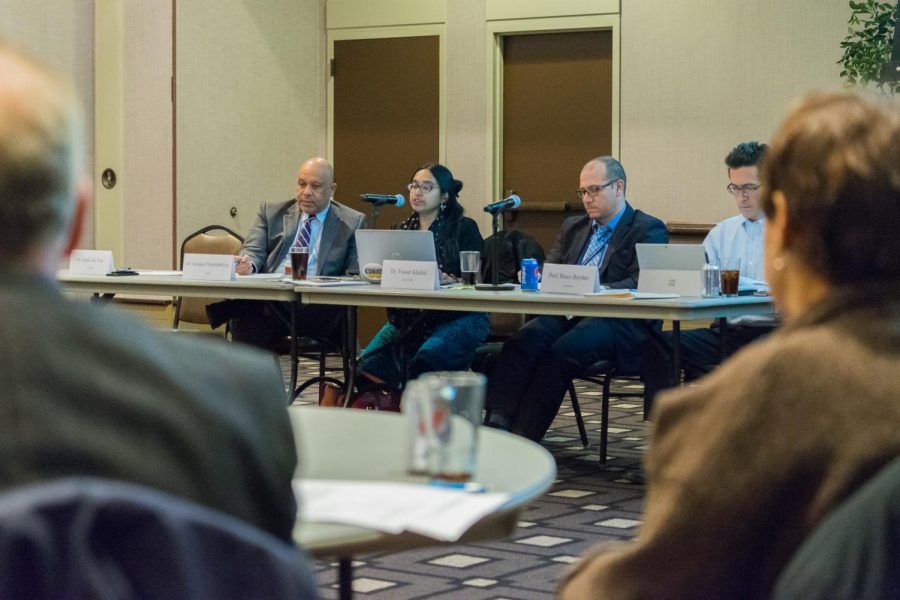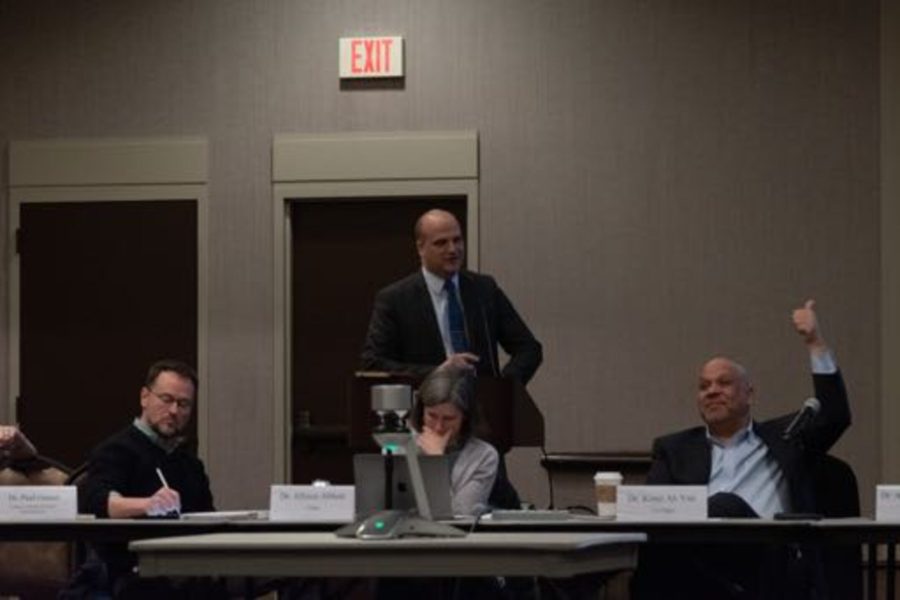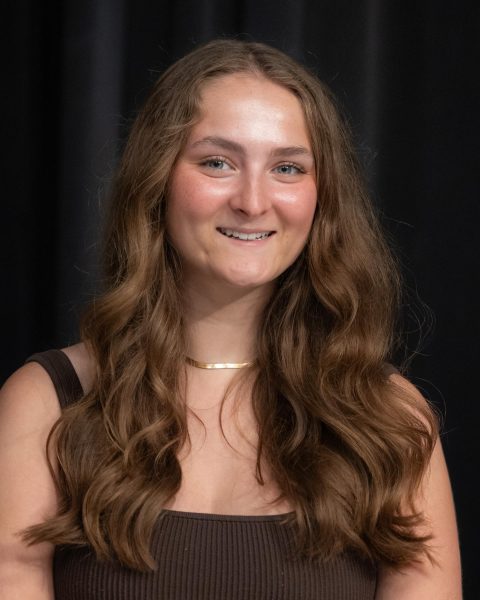The Clinical Immersion in Medical Device Design Certificate allows engineers to observe medical technology being utilized in a clinical environment.
“This certificate gives [participants] the opportunity … to go into the clinical environment through Froedtert [& the Medical College of Wisconsin] and observe and kind of learn how to observe and how to identify these unmet needs,” Jay Goldberg, professor of practice in biomedical engineering, said.
While also viewing operating rooms, Goldberg said this certificate gives people the opportunity to go into many areas 0f the clinical environment at Froedtert and work in simulation labs.
The University Academic Senate met March 21 to approve the program.
Goldberg said that many engineers that work for medical companies have to develop new products. He said those engineers may observe a surgery to see how they utilize the technology there to discover what problems there may be with those tools.
“From that information they can take that back to their companies and say, ‘Okay, Dr. Jones said I need a widget that does this, this and this better,” Goldberg said. “So now you’ve got an idea for a new product or a better product.”
“You could read about a procedure. You could see a picture about it— a picture is worth 1,000 words, right? A video is worth 10,000 words. If you could actually watch it live, I’ll say that’s 20,000 words,” Goldberg said. “But if you could take the instruments and do it yourself, that’s got to be 100,000.”
Said Audi, professor and director of graduate studies, said participants would physically be able to get into a simulation lab and have a hands-on-experience.
“They can actually interact with the doctors and the nurses and then get some feedback and then go back and forth maybe a couple of times,” Audi said. “And then eventually maybe take some ideas back to their companies.”
Goldberg said the underlying goal of the certificate isn’t to come out of the program with an idea in mind for a new product, but to understand how to enter a clinical environment and learn for what cues to look out for.
“For example if the surgeon is using some instrument and she ends up throwing it on the table and later on you say, ‘Hey, I noticed you seemed frustrated, is there a problem with that?’ She might say, ‘Oh no, they’re all like that.’ But that’s a red flag. That tells you, ‘Okay here’s an opportunity — they don’t even know they needed a better device,” Goldberg said.
This program is aimed towards engineers within the medical industry. In order to apply for the program one needs a baccalaureate degree in engineering or a different relevant background with at least a 3.0 GPA or higher.
Applicants must also have at least a 3.0 in upper level division coursework— 3000 and higher listed courses. Although applicants do not need to have a degree in engineering, if one doesn’t, one may need to enroll in prerequisite courses.
“This twelve credit certificate is quite innovative and identifying new opportunity for medical device design,” Norah Johnson, associate professor and pediatric primary care nurse practitioner program director, said in the meeting. “It’s coming from our engineering school and it has some collaboration with the SIM lab in the College of Nursing.”
Audi said this is a stand alone certificate that is not a part of the master degree or any undergraduate programs.
This story was written by Julia Abuzzahab. She can be reached at [email protected]


